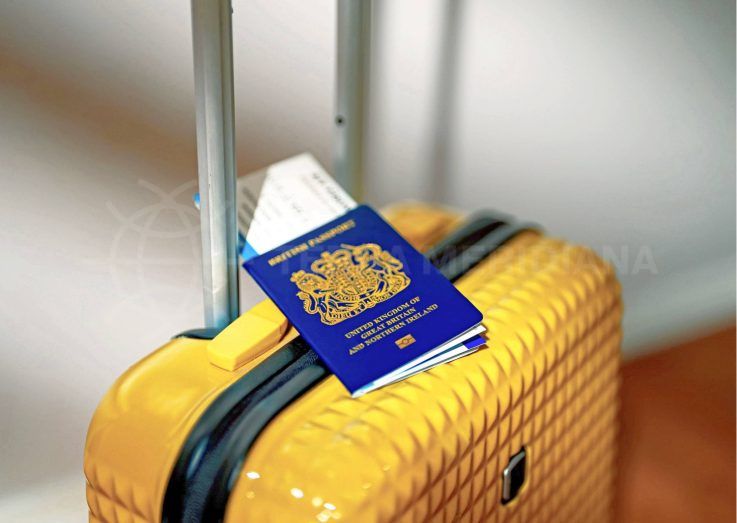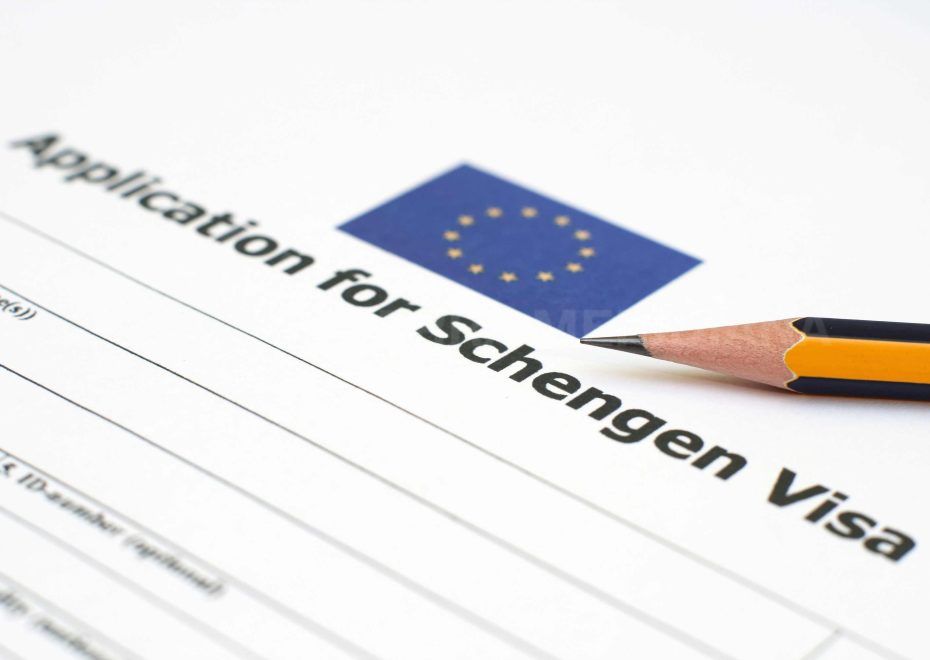
Opinion
EU Visa Extension for Brits? Don’t Hold Your Breath
There’s bad news, and there’s good…well, not news but hopes and dreams.
In recent months, there was a flurry of articles about the possibility of the EU – and Spain specifically – loosening the current Schengen regime for UK nationals. Ever since Brexit, Brits have only been able to stay in Spain for 90 days out of every 180 days, visiting for free.

If you want to stay longer – or even travel to another country in the Schengen Zone, you must endure the bureaucratic process of applying for a visa. If you have a second home in Spain and spend your winters here, that amounts to a big pain in the behind every year.
Potential Changes and Political Developments
Because of that – and the large number of British homeowners in Spain – there was much excitement when two simultaneous events occurred that suggested a move towards 180 days of visa-free travel per year.
First came an article about an amendment put forward in the French Senate as part of an immigration bill. The Senate voted in favour of extending visa-free stays in France for UK nationals who had bought second homes in France prior to Brexit.
Unfortunately, that amendment was kicked to the curb when the immigration bill was sent to the French Parliament. Then, the rest of the immigration bill was voted down as well.
President Macron, never one to take no for an answer, intends to bring the immigration bill back to Parliament after some manoeuvring. That has led some to hope that the UK-related amendment would also be resurrected.
Challenges and Opposition
But Macron himself opposed the amendment, and French MPs made it clear that they weren’t interested. The MPs on the immigration committee wrote:
“The automatic granting of a long-stay visa based solely on property ownership could be perceived as favouring a category of people because of their financial situation, creating inequality in relation to other foreign nationals who have to follow a more rigorous procedure to obtain such a visa.”
According to the recent English Housing Survey, 86,000 Brits have second homes here in Spain, the lion’s share in Andalusia and Valencia.
Impact on Tourism and Economy
The top sheet from that extensive survey shows that over half of all second homeowners use it for either holidays or as a retirement home. Next, at 35%, second homes were owned as a long-term investment.
With the British making up almost a quarter of all tourism to Spain, this is obviously an issue of concern to the Spanish government and anyone who works in the tourism sector. Tourism accounts for a very significant 12% of Spanish GDP.
Current Status and Future Prospects
Those facts and an article in “Leading Britain’s Conversation” (LBC) raised hopes that Spain was joining France in pushing to revise the law – except that France wasn’t pushing anything of the sort, as I noted above.
The article in question pointed to Spain’s interim Tourism Minister meeting with a senior UK government official as evidence that something was afoot.
Hector Gomez is quoted as saying things about the 90-day rule but only to the effect that it is an EU-level rule and so not one that Spain could change unilaterally.
Nor has there been any evidence since the excitement around the story over a month ago that Spain is lobbying Brussels to change the rule.
In fact, the story seems to largely have come from the Majorca Daily Bulletin, along with other English-language, expat-focused news publications on the Iberian Peninsula – and in a couple of British newspapers.
I could find nothing about it in the Spanish-language press, which leads me to believe the coverage wasn’t based on any sentiment or plans within the Spanish government itself.
Introduction of ETIA and Its Implications
The other news item that tells us this is not on the front (or even back) burner of European politics is the imminent implementation of the ETIA system, which amounts to the re-introduction of visas for all visitors, albeit in a streamlined system.
ETIA stands for European Travel and Information Authorisation System, and it will come into effect in 2025.
ETIA will affect nationals from 60 countries that are currently permitted 90 days of visa-free travel to EU countries out of every 180 days. That includes the UK, the US, and most of Latin America.
From 2025 – no specific date has currently been set – travellers from those countries will have to fill out an online form to be able to enter the EU. They will also have to pay seven Euros to receive the 3-year travel authorization. That process could take minutes – or it could take up to 30 days.
Not very heartening for those who were hoping for less hoops to jump through.
It isn’t called a visa, probably because it would cause treaty problems with countries such as the USA and the UK. But it is a de facto visa by another name.
You can also colour me sceptical that the roll-out will be as smooth as they suggest. Anyone who has dealt with EU bureaucracy will likely feel the same.
Perhaps it will only take minutes, and perhaps it will take days. Once introduced, it also becomes much easier to increase the stringency of the ETIA.
Adding another layer of permission for people who just want to get to the beach to relax is not a good business practice. This will be especially true if it does turn out to be more difficult.
Alternative Destinations and Final Thoughts
For instance, no visa is required for UK tourists who want to head to Egyptian or Turkish resorts. Surely, the Spanish government is aware of this. Perhaps they feel that the current instability in the Middle East makes those countries less of a threat.
Whatever the thinking in Madrid and Brussels, it is clear that there’s no easing of Schengen rules for British tourists coming in the near future. Luckily, our beaches, the weather, the food, and the wonderful people will continue to be big draws.
By Adam Neale | Opinion | December 19th, 2023
Related Posts


